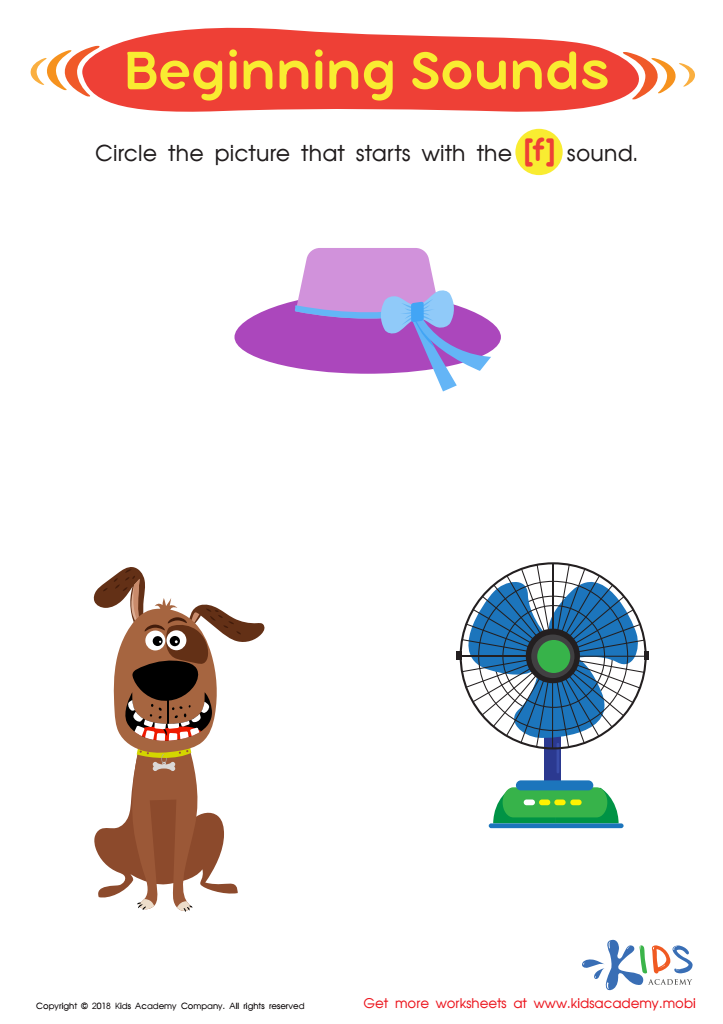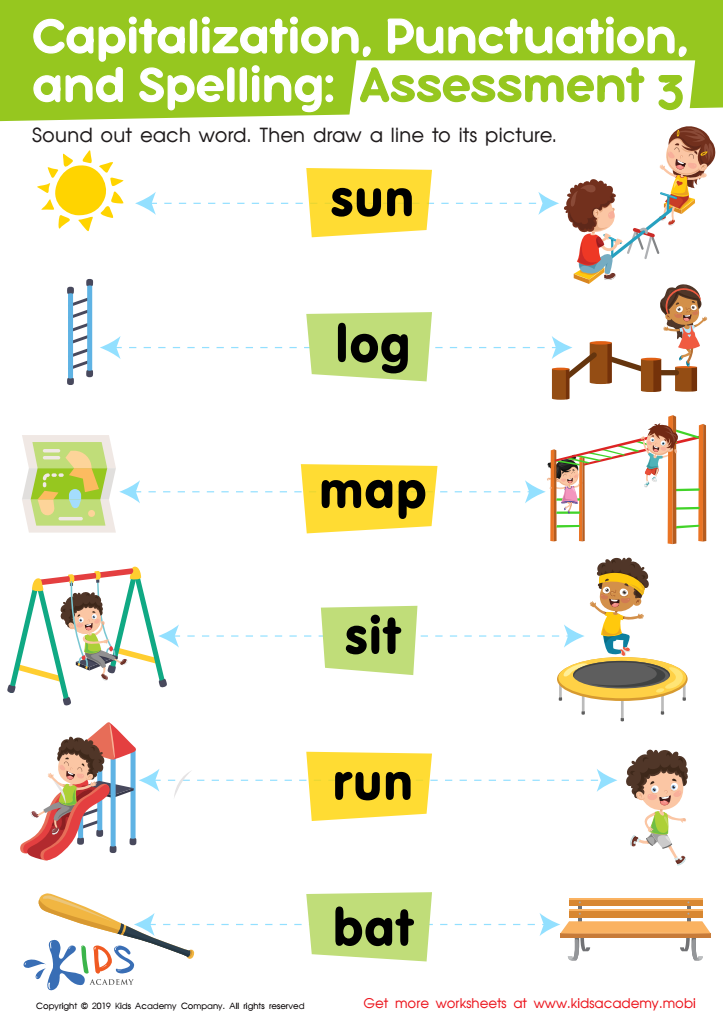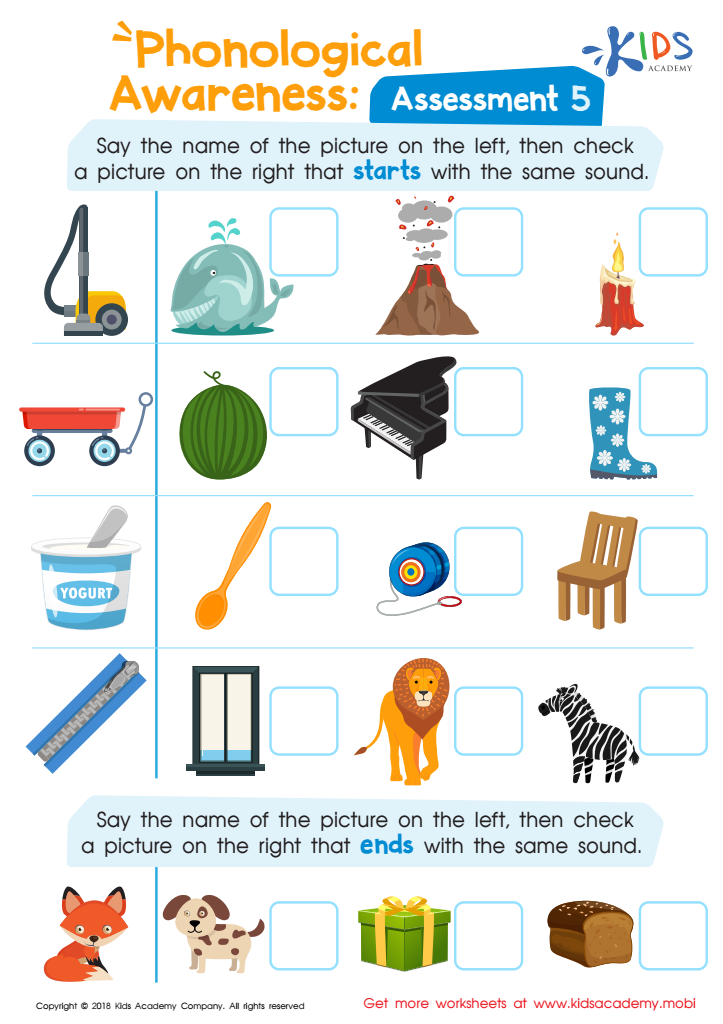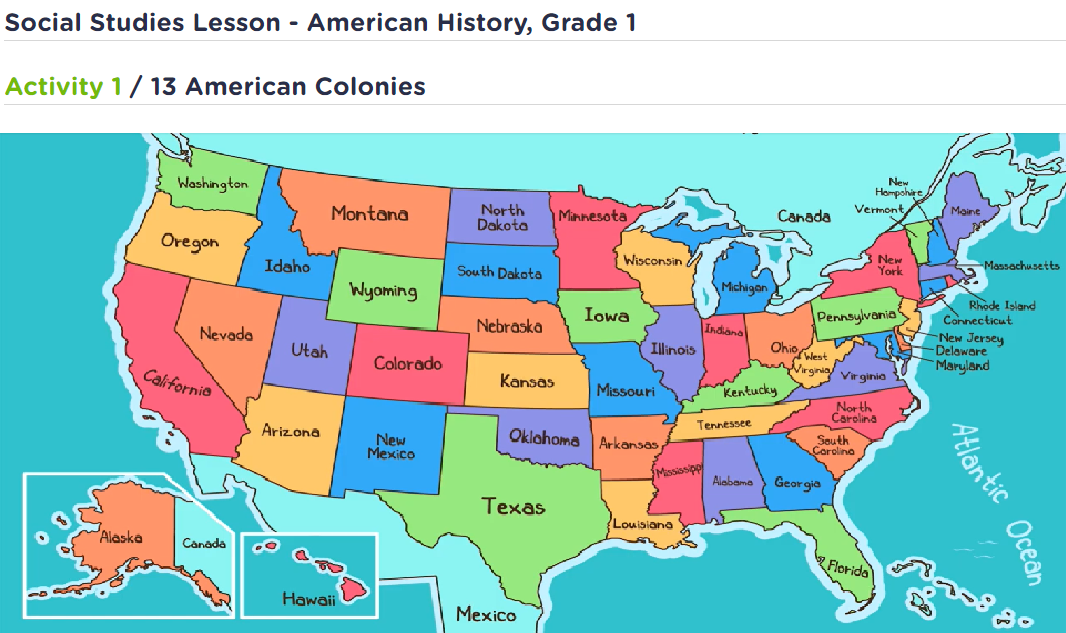Easy Phonics worksheets activities for Ages 5-7
4 filtered results
-
From - To
Discover our engaging Easy Phonics Worksheets designed specifically for children aged 5-7! These interactive activities help young learners develop essential reading and writing skills through fun and straightforward phonics exercises. Each worksheet focuses on sound recognition, syllable blending, and vocabulary building, ensuring a solid foundation in literacy. Our printable resources are perfect for classroom use or at-home learning, catering to various skill levels. By making phonics practice enjoyable, these worksheets inspire confidence in young readers and enhance their learning experience. Explore our collection today and empower your child’s journey towards reading success!


Beginning Sounds Assessment Printable


Capitalization. Punctuation. Spelling. Assessment 3 Worksheet


Phonological Awareness: Assessment 5 Worksheet


Phonics and Word Recognition: Assessment 1 Worksheet
Parents and teachers should care about Easy Phonics activities for ages 5-7 because these foundational skills are critical for a child’s literacy development. At this age, children are starting to form the essential building blocks of reading and writing. Easy Phonics activities help young learners develop letter-sound recognition, blending, and decoding skills, which are vital for reading fluency and comprehension.
Engaging in phonics activities also fosters a love for language and learning. By using fun and interactive techniques, such as games, songs, and rhymes, children become excited about reading, which can lead to long-term academic success. Furthermore, early phonics education addresses various learning styles, ensuring that all children, regardless of their learning pace, can grasp these core concepts.
In addition, strong phonics skills can boost a child's confidence and motivation when approaching more complex texts later on. For parents and teachers committed to fostering a positive learning environment, incorporating Easy Phonics activities can significantly support children’s overall development, paving the way for a lifetime of reading enjoyment and academic achievement. Ultimately, investing time in phonics education at this critical stage is an empowering opportunity to shape a child's future.
 Assign to My Students
Assign to My Students
















